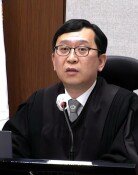[Editorial] Korea needs human rights commission
[Editorial] Korea needs human rights commission
Posted August. 22, 2000 12:11,
President Kim Dae-Jung always has regarded himself as human rights president and has considered the improvement of human rights as one of the characteristics of his administrative philosophy. Although the improvement of human rights issues had taken a back seat during the first year of his administration -- as the government needed to divert all of its effort toward overcoming the economic crisis -- the Korean people expected the situation to change during the second year of hits administration. However, the Korean Bar Association has assessed that the second year was extremely disappointing.
Through its recently released annual report on the human rights situation for 1999, the KBA pointed out that although there had been moderate improvements with the adoption of special legislation for the fact-finding task force for the April 3 Cheju incident and mysterious deaths, there has not been much fruition in the fundamental areas of human rights under the responsibility of the government, such as conscientious prisoner amnesties, violations of human rights as in the past, the reform of laws against activities considered anti-democratic and the establishments of national human rights organizations.
We feel it is imperative for the government to establish a new human rights policy through such efforts as the enactment of human rights laws. The enactment of human rights laws and a human rights violation surveillance organization based on these new laws were on the list of 100 promises that the Kim administration made through the Committee for the New Presidency in February 1998. However, human rights have been on the high seas for three years, and as if Prime Minister Lee Han-Dong finally had taken note, he announced during the extraordinary National Assembly session that he would push for human right legislation and form a human rights committee.
It is a matter of keeping its pledge for the administration to stress the need of human rights laws and organizations. However, the real issue is the content and the scope of the human rights laws. The human rights bill written by the Ministry of Justice and submitted to the 15th National Assembly, which failed to decide on the bill, will be resubmitted to the assembly without any changes made. The bill proposes to turn the human rights committee into a public organization that would only have the authority to give advisory warnings for human rights infringements.
We feel it is an act of turning a blind eye to the real human rights issue. Just as many human rights groups have made constant requests, the human rights committee must have the resources to investigate cases of human rights abuses by other governments and must have actual authority to reform the legislation and laws concerning human rights. This is a worldwide trend. In order to do so, it is necessary to turn the human rights committee into an independent national agency.
For some time, the United Nations and other human rights organizations have urged South Korea to establish a human rights commission as one of the steps toward faster democratization. It would be a mistake to establish a shell of such an organization as a reluctant answer to the pressure. The government must rework and propose a more sincere human rights bill that can be supported by the domestic human right organizations as well as the international community.







